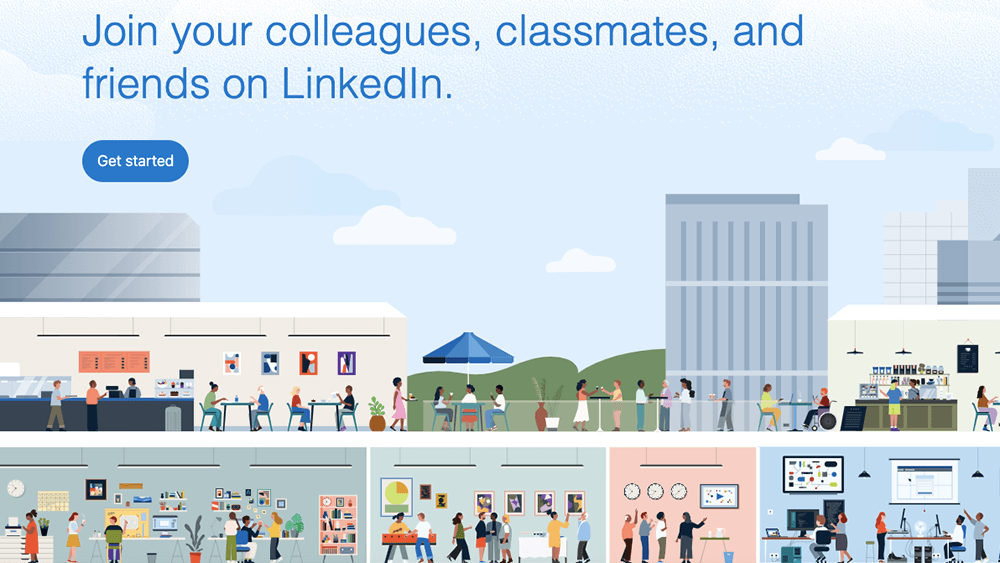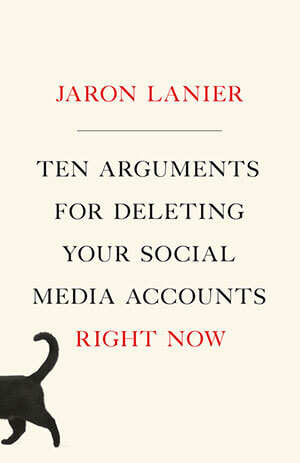
Of all the social media platforms, LinkedIn is the most polite, some experts say. Even its homepage looks welcoming.
If you have found yourself using social media more — maybe a lot more — during the last few months, you’re not alone. As many as 51 percent of adults living in the U.S. report an increase in the amount of time they spend on social media, according to research reported last month on emarketer.com. Social-media usage is expected to fall once the crisis of the pandemic is behind us, but there are reasons, mental health experts say, to be thoughtful about the ways we use it.
The use of social platforms, including Facebook and Twitter, has been linked to increased anxiety and depression, although there’s also research that shows how the technology enhances our social connections. One of the drawbacks of the algorithms used by Facebook and other social-media platforms is that they have been designed to maximize engagement — and it is much easier to engage us with negative emotions than positive ones. Negative posts were twice as prevalent on Facebook business pages as positive ones, even before the pandemic. Given the preponderance of bad news these days, it’s no wonder a new term has emerged to describe the time we spend on our phones checking for the latest Tweets and posts: doomscrolling.
The good news is that there is one social platform — LinkedIn — that’s different from the rest. With more than 575 million users, LinkedIn is much smaller than Facebook (2.3 billion users) or Instagram (1 billion users), but larger than Twitter (270 million users.)

LinkedIn users aren’t all searching for the same career, writes Jaron Lanier in his book, so they aren’t competing and thus, the discourse is elevated.
To put it bluntly, of all the large social networks, LinkedIn is the platform with the fewest a**holes, writes Jaron Lanier in his book Ten Arguments for Deleting Your Social Media Accounts Right Now. Lanier, an author, academic, and computer scientist who was one of the founders of VR, may hold an extreme view, but it is one based on real differences. Unlike social platforms that rely primarily on advertising for income, LinkedIn, which is owned by Microsoft, relies on membership fees and recruiters in addition to advertising.
LinkedIn users “have something to do rather than compete with one another for social appearances” — they are there to further their careers, explains Lanier. “LinkedIn users aren’t all seeking exactly the same career, so they aren’t forced precisely into direct conflict or politics with one another,” he writes.
And because it’s a professional network, hate speech and fake news are much less likely to appear on the platform, said LinkedIn’s executive editor Daniel Roth in an interview with Vox. “When you write or share or comment on LinkedIn, your boss sees it, your employees see it, your future business partners see it,” Roth said. “So people tend to be much more careful about what they say.” The unifying focus on careers on LinkedIn raises the stakes “beyond mind games,” Lanier adds, “and elevates the online environment.”
And finally, LinkedIn also creates opportunities for users to support their connections, by leaving reviews and affirming others’ skills and strengths. And demonstrating generosity and kindness toward others is a science-backed way to increase our own happiness at work.
You can learn how to elevate your own LinkedIn profile by watching the PCMA webinar, “Get Empowered: Your Professional LinkedIn Makeover,” with event tech expert and Dahlia+ founder, Dahlia El Gazzar, DES.
Barbara Palmer is deputy editor of Convene.
